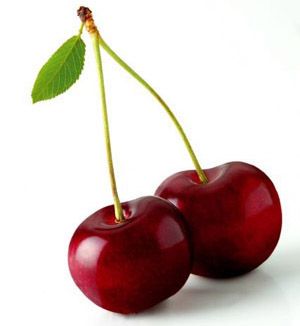What nutrients should be supplemented with overuse?
It can be said that the eye is one of the most affected organs of the human body. Although its volume is not large, its precision and the demand for nutrients, oxygen, and blood are not inferior to any organ. Therefore, in order to protect the eyes, we must also emphasize scientific diet. So what nutrients do eyes like?

1. Prevention of Cataracts: Anthocyanins. Anthocyanins can promote the formation of rhodopsin in the eye, stabilize microvasculature in the eye, and enhance microvascular circulation. In addition, anthocyanins are a powerful antioxidant that can reduce free radical damage to the eyes and help prevent cataracts. The foods rich in anthocyanins include blueberries, blackberries, cherries, eggplants, red pomegranates, and purple rice.
2. Block harmful light: lutein and zeaxanthin. In the carotenoid family, only zeaxanthin and lutein are present in the retina of the eye, and they are present in equal amounts. They can help block the blue light that damages the eyes, protect the macula from damage, and maintain visual acuity. With clarity. In addition, studies have also found that increasing the intake of zeaxanthin and lutein can reduce the occurrence of cataracts. The lutein-rich foods include spinach, cauliflower, onion, red leeks, asparagus, and rapeseed. Foods rich in zeaxanthin include corn, pumpkin, oranges, spinach, and kale.
3. Prevention of night blindness: beta-carotene. Beta carotene can be converted into vitamin A in the body. Therefore, fruits and vegetables containing beta-carotene are a good source of vitamin A. Vitamin A is an important raw material that constitutes the ocular photoreceptor. Vitamin A is sufficient to increase the cornea's smoothness and brighten the eyes. On the contrary, it will cause corneal epithelial cells to fall off, thicken and keratinize, make the original clear and transparent cornea become blurred like a frosted glass, and even cause eye diseases such as night blindness and cataract. Beta-carotene-rich foods: carrots, spinach, pumpkin, sweet potatoes, cauliflower, mangoes, etc.
4. Make vision clearer: DHA. The retina and optic nerve in the eyeball are rich in DHA, however, we cannot synthesize this fatty acid. Appropriately supplementing the DHA will make the vision sharper and clearer. In addition, DHA is also an important component of brain neurons. Foods rich in DHA: deep-sea fish, such as salmon, salmon and so on. Vegetarians can eat flaxseeds, perilla seeds, or algae.
5. Prevention of maculopathy: zinc. Studies have found that zinc deficiency is closely related to macular lesions. If there is not enough zinc, it will lead to vision loss and unclear vision under low light. Zinc-rich foods: shellfish and soft seafood, lean meat, black sesame seeds, hazelnuts, walnuts, etc.
6. Delay eye aging: Vitamin E. Vitamin E has a strong antioxidant, it can reduce the free radicals in the eye and delay eye aging. Foods rich in vitamin E: almonds, sunflower seeds, etc.
7. Improve eye health: Vitamin C. Vitamin C can prevent the retina from UV damage, prevent crystal aging, increase the toughness of small blood vessels in the eyes, repair cells, and help improve eye health. Foods rich in vitamin C: kiwifruit, fresh dates, grapefruit, green peppers, strawberries and so on.
Magnesium Fortifier,Magnesium Sulfate Dried Product,Magnesium Sulfate Heptahydrate,Anhydrous Magnesium Sulfate
LIANYUNGANGLONGTAIWEI FOOD INGREDIENTS CO.,LTD. , https://www.longtaiweifood.com